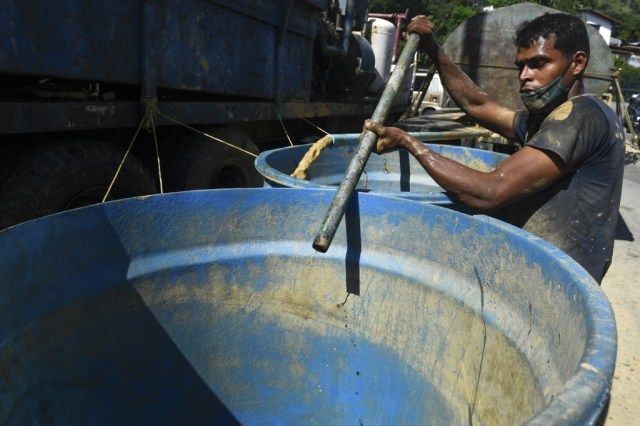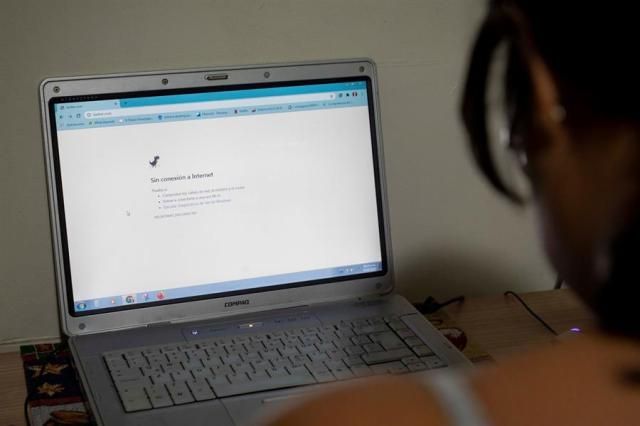Public services such as electricity, water, gas and telecommunications continue to deteriorate throughout the country, as determined by the most recent study by the Cedice Libertad Public Expenditure Observatory.
The OGP Monitor was based on the following sources: a digital survey sent to 2,300 people deployed throughout the national territory, with the support of volunteer correspondents in 10 locations.
The instrument collects quantitative inputs on the performance of basic services in terms of continuity, coverage and quality, in addition to the review of 25 digital media to capture citizen complaints.
Electricity
The report is from March 2024 and detected that in terms of electricity supply, 76% of respondents reported an increase in the number of blackouts or failures in their sector. They highlighted that in some sectors electricity outages exceed 6 hours. “It grew by 3% compared to the previous month and the cities with the most incidents in electrical matters are: Zulia, Bolívar, Yaracuy, Falcón and Mérida.
The Basic Services Monitor determined that the monthly average without electricity in the states with the most problems in the provision of the service is 12.8 hours, 4.10% more than in February and the reported failures were
31,962, 4.91% more.
Regarding extra payments that the interviewees make to compensate for failures in the electricity supply, the study determined that there were disbursements of between US$ 20 and US$ 30
“This investment is aimed at the maintenance or rental of plants and the purchase of supplies for improvised lanterns (…) 61% of those surveyed highlighted the growing uncertainty regarding progress in the clean slate plan. “They want more and better, as well as consistent attention to flaws.”
Water

Regarding this service, the report indicated that 62% of those surveyed highlighted that there is fatigue due to the instability of the water supply in their community. “The drought does not allow planning household activities that need water; In addition, citizens must invest a lot of time in liquid accumulation processes in tanks and containers.”
And 52% of those surveyed assured that in their town no improvements have been made to the pipes or distribution mechanisms since a period must pass between the water coming out of the pipe from being cloudy to clearer.
The average additional payments made by Venezuelans to cover water deficiencies is between USD 30 and USD 40. Citizens buy water for consumption and also buy water from tanker trucks.
Pain points
The Cedice Libertad OGP report indicates that the 5 “pain points” that most afflict Venezuelans in terms of water and sanitation are:
Water supply rationing schedules are often missed.
The rates are very low country providing the service.
There are constant cans of water in the streets due to deterioration of pipes
It seems that there is no failure and emergency response program.
Telecommunications

The report detected that 76% of those surveyed stated that failures or breakdowns are generated during the most useful hours of the day, slowing down and in some cases, making administrative and operational management impossible in many companies. In Zulia, failures were reported that made banking transactions impossible on several occasions.
87% of those surveyed said they had experienced some breakdown with their internet or landline service, “either as a result of electrical failure or lack of maintenance. 55% say they have had more than 6 months without a solution to these situations and the majority highlighted that even when they pay for the service, they do not receive it.”
For 80% of those surveyed, switching to a private internet solution is a fact. Rates range between US$20 and US$60 per month. “This migration occurs because the management of the State telecommunications company is inefficient, unreliable and late,” said the work papal.
Pain points
At least 4 out of 10 users have had problems with their landline telephone lines. There are intermittent failures or the lines are not working.
The speed, latency and stability of the internet provided by the state company is intermittent
Maintenance days require unofficial charges
Although rates have increased, the service remains inefficient
There are few effective channels to make complaints or claims.
Gas
Several independent studies indicate that approximately 87% of Venezuelans require cylinder gas service (LPG – Liquefied Petroleum Gas). “The filling provision is executed under a manual distribution scheme. Meanwhile, more than 2/3 of those surveyed expect the activation of a direct gas supply plan whose objective is to improve the quality of life of citizens who still use gas by cylinder,” said Cedice Libertad.
10% of those surveyed by OGP researchers stated that they use firewood or charcoal stoves for cooking, as a result of the fact that gas distribution in their location is inefficient. “This metric continues to grow, a few months ago it was 7%.”
A large number of respondents have requested the installation of direct gas, but some providers present rates ranging between US$100 and US$200 to make the change.
More than 25% of those surveyed said they had had an incident related to their cylinder. Of this percentage, 6% claimed to have experienced an explosion.
Pain points

There is inconsistency in the cylinder replacement scheme.
The cylinder fleet is obsolete. Only two out of 10 are new technology.
Citizens have chosen to pay unofficial rates to obtain preferential treatment from cylinder distributors.
The frequency is not covered by a known schedule.
There is no stipulated time for replacing the cylinder. It can be between 2 or 4 hours and even longer.
To promote substantial improvements in the provision of public services, researchers from the Cedice Libertad OGP consider that specific sections of processes in energy, water, etc. could be privatized, allowing for improved and more flexible results.
They also recommended developing a policy of public-private alliances, as well as national consultations aimed at investigating how to prioritize the use of national budgets to solve shortcomings in public services. They advise on identifying where there are opportunities to improve services,
From the liberal perspective, the OGP team believes that the participation of the academic sector is vital to analyze the management of the proposals and their respective follow-up. In addition, the re-culturalization of roads, public transportation, awareness to make rational use of water, among other aspects, is planned.
With information from Cedice Libertad










